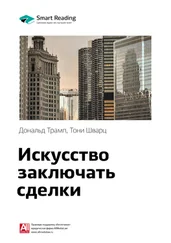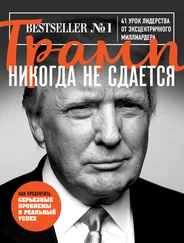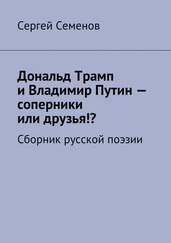If you weren’t in the Communist Party, things were harder. My grandfather refused to join the Party and got away with it only because of his expertise as an electrician. Because of their non-Party status, my grandparents were always last in line for everything. The government issued tickets for food, but by the time my grandmother got her turn, there would be nothing left. My grandfather once waited eight hours for an orange. My grandmother made all of my mother’s dresses by hand because the store shelves were empty when she was allowed to shop.
On my visits to the country, I experienced the bread lines and the poverty myself. When I talk about why socialism is bad, it’s not because I’ve read articles about it or seen people talking about it on Twitter. I’ve been there, and I know why no one who’s actually lived under these systems ever advocates for them.
Because my grandfather wasn’t in the Party, he and my grandmother felt the stifling grip of communism even more than most. The whole time Czechoslovakia was a Soviet state, they were under constant surveillance. I’m sure if you look back in the Party archives, you’d find a file about each of them. If my grandparents came to see us in the United States, they would always be questioned extensively upon returning home to Czechoslovakia.
So, I guess it’s not just me and my father. People in my family have been getting spied on by governments for generations!
Stepping off the plane that first time, I came face-to-face—well, face-to-hand, really—with life behind the Iron Curtain. The line for customs was long and moved slowly; the Communist Party of Czechoslovakia was about as easily offended in those days as your average American liberal is today. Customs agents, dressed more like soldiers, searched everything. If they found anything offensive on your person, you were either arrested or, in my case, reprimanded.
At the time, I had a favorite jacket that had blue and white stars on the back like the American flag. Though I can’t remember, I would imagine my mother had bought it for me. When it was my turn, the customs agent glared down at me as though I were a tiny spy (I guess there’s something about the way I look).
“You can’t wear that here,” he said, pointing at my jacket.
Though I understood the guard’s Czech, I didn’t realize what I had done wrong. I didn’t know that the jacket was too American for a Communist country.
I remember looking around the room and seeing how afraid all the Czech citizens were on my behalf. I’m sure they had seen similar scenarios play out much differently, especially when the offender wasn’t a five-year-old kid. My grandfather told me to take the jacket off, and then he talked to the guard. Whatever he said, it was enough to appease the agent, and we made our way through. In the car, on the way to my grandparents’ apartment, I asked my grandfather why the man didn’t like my jacket.
“Things are different here,” he said.
As much as I look back fondly on all the time I spent with my grandparents in Czechoslovakia, that incident with the jacket remains one of my earliest childhood memories. I think it’s because of how serious things got all of a sudden. Even after all the fun memories fade away, I’m sure I’ll still have the feeling of what it was like under the stare of that customs officer.
It didn’t take me long to notice how dull and similar everything in Czechoslovakia was. Compared to the view from the roof of Trump Tower, where I went many times as a kid, New York City was an IMAX movie while Czechoslovakia was a black-and-white photograph.
Every new building was made of the same gray concrete. All the clothes were the same colors and the same styles. Even the appliances in my grandmother’s kitchen looked as though they had rolled off the same drab assembly line. There were only two channels on television—one cartoon for kids called “Vechernczrk,” which aired every night around dinner time, for a total of ten minutes and another news station for adults.
Soon I began to see the dichotomy between the two countries. I could sense that there was something underneath all those tall buildings and twinkling lights in Manhattan that was absent in the Soviet Union. The engine that made it all run. Later, I would learn that the engine was called the market and the missing piece was called capitalism.
I was eleven years old in 1989 when the Berlin Wall fell and the Communist government of the Soviet Union started to crumble. The change came rapidly to my grandparents’ hometown. By 1992, Czechoslovakia was being called the Czech Republic. The government embraced the principles of democracy and capitalism. Suddenly it was time for the Czech people to work hard and build an economy that could compete on the world stage. It was a tall order, and not everyone was happy.
My friends in the Czech Republic would tell me how hard it was to make the transition from a command economy, where the state makes the rules and requires the bare minimum of its citizens, to a market economy, where citizens get only what they work for and government handouts are slimmer. Much like people who depend on welfare in the United States, many had gotten used to not working and getting everything for free. Teaching them to start businesses and earn money for themselves was more difficult than anyone had expected—although for those with the ability and the willingness to work, the possibilities were endless.
Though it wasn’t an easy transition to make, it was a good one. As long as a country is continually moving away from socialism, away from free rides and handouts from the state, and toward the free market, that country will always be better off.
The story of the Democrat Party is the exact opposite of Czechoslovakia’s. Instead of embracing capitalism, they’ve descended into socialism. This would be bad enough if the people who were pushing socialist policies had any idea what socialism is or how horrible it is for people who have to live under it, but it’s much worse that they don’t. Maybe Bernie Sanders and his acolytes in Congress do but don’t care. That makes their actions even worse.
Socialists have taken advantage of every crisis to promote their policies and spend millions of dollars on marketing (oh, the irony) to convince young people that socialism can take care of everything for them. Bernie Sanders alone has three houses. He’s made millions of dollars under capitalism while preaching like a crazy person for its opposite. Let’s call him the “Commie Capitalist.” People like him say that socialism can pay off student loans, provide a universal basic income, even provide free college and health care. In 2016, a YouGov poll found that 44 percent of young people between the ages of sixteen and twenty-nine would rather live in a socialist country than a capitalist one like the United States. As if that weren’t scary enough, only 33 percent of the people could even describe with any accuracy what the word socialism means. This is precisely the way Bernie Sanders has wanted it all along: push lies for years until you make a majority of the population ignorant enough to believe those lies.
I have to admit that for a socialist, he’s come up with a pretty good business model.
If Democrats had taken some action to rein in their craziest member a few years ago, they might have been able to fix their problem and regain some degree of sanity. Today, the chances of that happening are about as good as the chances of Bernie ringing the opening bell at the New York Stock Exchange. The midterm elections of 2018—which, by the way, were unfairly influenced by the baseless Russia collusion investigation—was a turning point. As soon as the new class of freshman socialists rolled into the Capitol building (once they found it), any hope of reconciliation went out the window.
Читать дальше












